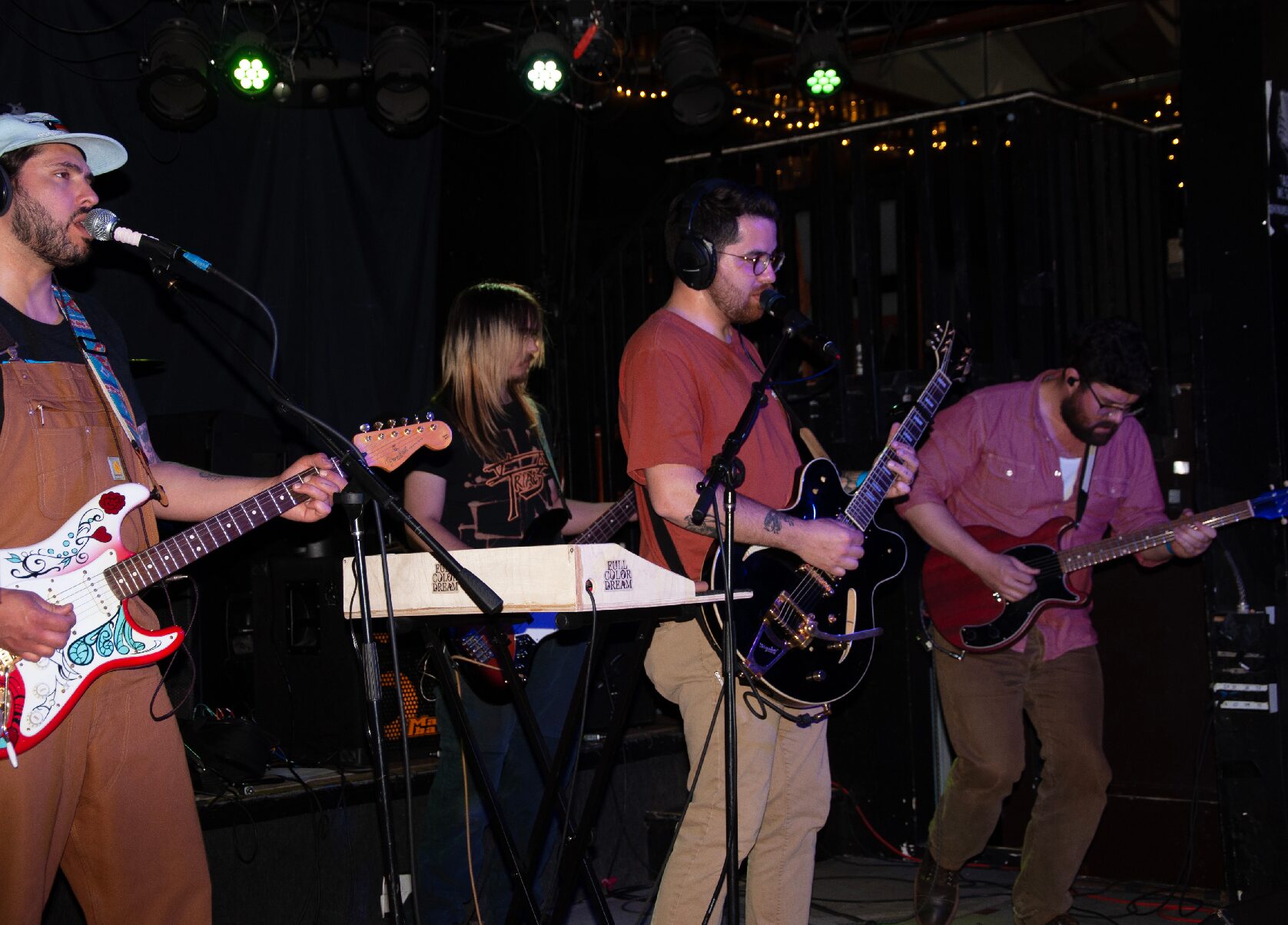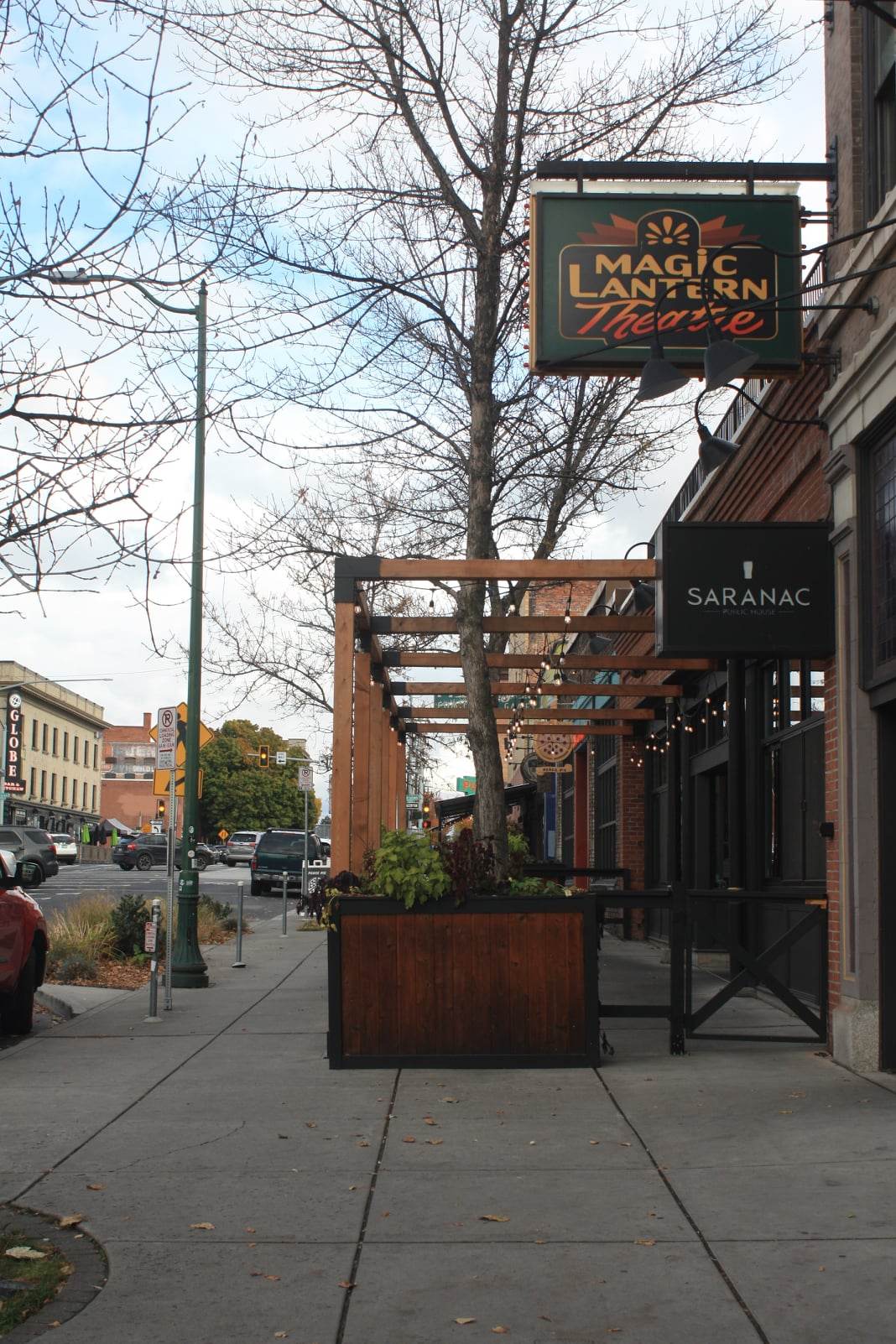Local artists, bands and engineers are pouring their passion into projects that may never reach national acclaim, but carry deep, personal and communal meaning.
One of the biggest shifts in the industry, both locally and globally, is the growing presence of artificial intelligence in music production.
Jimmy Hill, a Spokane-based audio engineer and musician who’s been working professionally since 2005, has watched this evolution firsthand.
“We are seeing more bands do things at home and bring music in for final touches,” Hill said. “Rather than how it used to be when they would just do everything here at the studio.”
AI tools have made music production more accessible, allowing artists to make melodies, harmonies, and even full songs without ever stepping foot in a studio. But not everyone is convinced this is a good thing.
“We’re seeing songwriters use AI… which there’s a whole thought process on whether that’s good or bad,” Hill said. “I don’t personally love it because I am an artist at heart myself, and I just don’t think AI should touch the human condition, so to speak.”
Jimmy said he believes the raw, human aspect of creating music like the mistakes, inspiration and collaboration is being diminished.
“As humans we should still be creative and use our imagination and share that,” said Hill.
It’s not just about technology. The real problem is that young local bands are disappearing. Industry professionals are seeing a cultural shift happening, where spontaneous creativity and community-based music-making are being replaced with computer-made beats and people making music unassisted.
“The biggest issue right now is you’re not seeing a lot of boys and girls getting together and making music in a garage anymore,” Hill said. “There’s a lack of energy in the industry now.”
That change is felt on the ground by artists like Cullen Webster, a member of the Washington-based band Full Color Dream.
“Booking tours is hard,” he said. “The hardest thing is making it affordable to actually go out and tour.”
Like many independent bands, Full Color Dream self-records and self-produces everything. Their approach is deliberately anti-AI.
“All of it is from our hearts and imaginations and we like to stay authentic,” said Webster.
But that commitment to authenticity often comes with financial and emotional sacrifice.
“In order to do what we like, you kind of have to believe pretty strongly in yourself,” Webster said. “You can’t get scared and uneasy about the struggles, you just have to vibe honestly.”
It’s a sentiment echoed by Hill, who reminds aspiring artists that passion is a requirement, not a bonus.
“Make sure you’re super passionate about the music, the art form, interacting with bands and artists… because it’s going to be long nights and time away from your regular life,” said Hill. “But in the end when you get that finished product, it’s all worth it.”
Despite the challenges, there’s still a powerful sense of community within Spokane’s local music world.
“It’s a provider,” Hill said. “It has meant community, it has meant passion, and it has also meant growth.”
He reflects on the joy of simply gathering to make music.
“It’s kind of an average thing but it’s so moral,” Hill said.
Yet even that community feels that they could use more support.
“I hope that our city itself would embrace the local artists,” Hill says. “I feel like we don’t do enough as a community to promote and support our bands in our own backyard. There’s a stigma with local bands that I think needs to be eradicated.”


